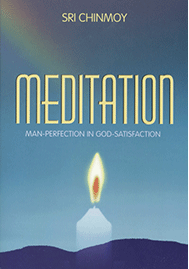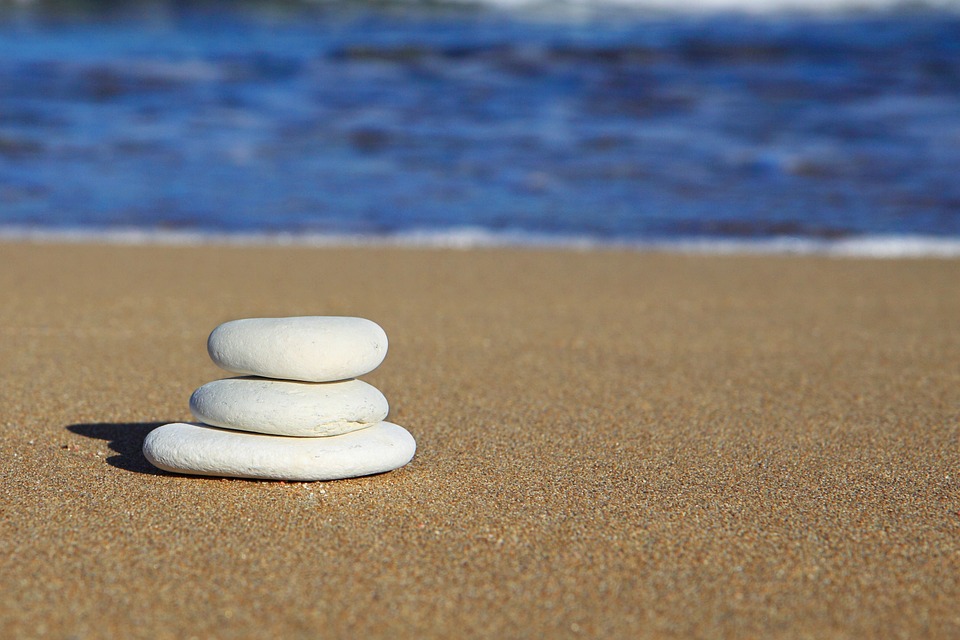In one sense meditation doesn’t need any preparation. We don’t need to gain any preliminary knowledge or understanding – we can just turn up and meditate. However, if we wish to maximise the benefit from a period of meditation, there are a few things that will help us to become more receptive.
 Reading. Reading a book on meditation will give us a background into the mechanics of meditation, but more importantly, will give us the inspiration to try and persevere with meditation. Although the experience of meditation cannot be adequately explained through a book or words, we can pick up on something of the spiritual inspiration behind meditation that may encourage us to dig deeper. It will also be able to answer some of the common questions which arise about the subject of meditation. A book we recommend for our course is Meditation by Sri Chinmoy.
Reading. Reading a book on meditation will give us a background into the mechanics of meditation, but more importantly, will give us the inspiration to try and persevere with meditation. Although the experience of meditation cannot be adequately explained through a book or words, we can pick up on something of the spiritual inspiration behind meditation that may encourage us to dig deeper. It will also be able to answer some of the common questions which arise about the subject of meditation. A book we recommend for our course is Meditation by Sri Chinmoy.
Learn to be still. When we have a few minutes spare, we don’t need to feel obliged to fill it up with activity. There is always something to check on our phone, but equally, we can always choose to ignore it – we really will not miss out on anything by taking a break. If we can get out of the habit of compulsively checking what others are doing and filling our mind with newsfeeds, then we will find it easier to be at peace with ourself. We can make this effort to switch off from the pressures of life throughout the day. In meditation, we will make more of a conscious effort to devote a period of time in the day to this practise of being silent.
Declutter. In a way meditation can be seen as a form of decluttering the mind – we are clearing out the useless thoughts that we don’t need. If we go through our room and get rid of those objects we don’t value or don’t need, we create a physical space that is more harmonious and peaceful. There is a joy in empty space; it enables us to value that which really gives us joy. When we do this outer decluttering, it will be one step towards decluttering our mind. There is an old Zen proverb – that if we want to fill a cup full of honey, we first have to remove the dirty water. It is the same with meditation; if we want to fill our inner peace with peace and joy, we have to get rid of the clutter. This physical decluttering with help provide us with an inspiring place to meditate in our room.

Value nature. If we value nature, it will help our meditation. When we are with nature, we can appreciate the beauty and simplicity of life; it takes us away from the complications of life. Sometimes, in nature, we can lose our worries and anxieties, and this is similar to the experience we gain in meditation. If we make an effort to be in nature, then we will value more the peace that can be got from meditation.
Look after yourself. Meditation involves gaining a greater integral understanding and appreciation of our whole being – mind, body and spirit. If we take care of the body, we will help our capacity to meditate. Even a little regular exercise – walking, running or cycling – will give many benefits to those who want to meditate. When we meditate, we are trying to be inwardly still, but it is a dynamic experience – not passive. When we exercise, we overcome our lethargy and cultivate more positive energy. This sense of energy and dynamism is very beneficial to meditation – it will give us the inner strength to detach from our thoughts. In meditation, we also learn everything is connected – even what we eat and drink has a bearing on our inner state. If we eat healthy foods, then the milder vibrations of the food will make us more amenable to meditation.